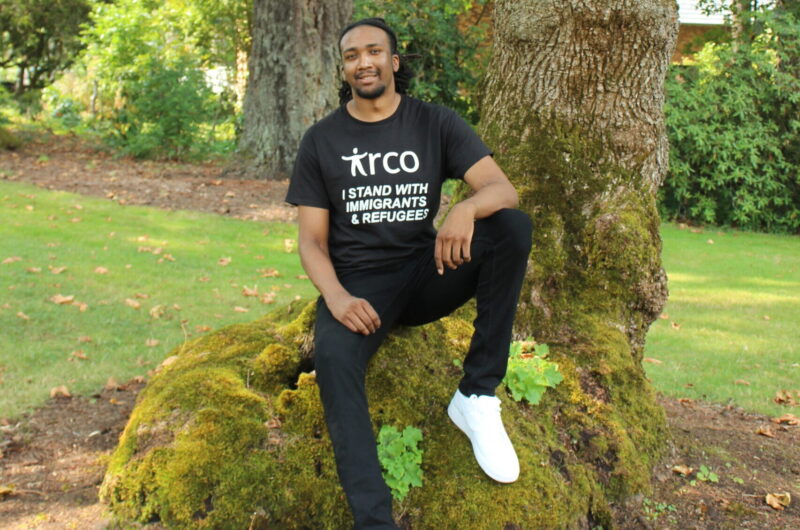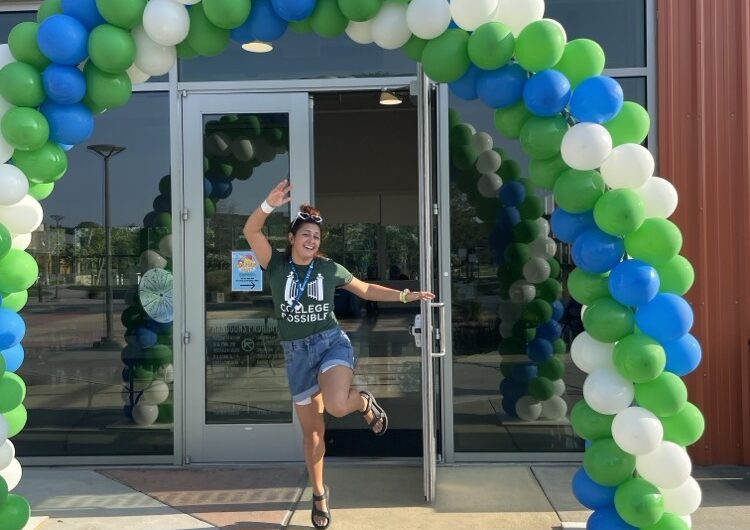This article was written by a UT Austin Junior as part of our Real Talk: Being a POC at a PWI blog series, which spotlights the stories and experiences of College Possible students of color. These stories are not indicative of every student of color’s experience at their predominantly white institution (PWI). However, other students of color reading may find parallels in these accounts. Due to having similar experiences at their respective campuses. Every person’s story carries value in the holistic experience colleges have to offer. The article’s author has chosen to remain anonymous, nonetheless we appreciate her for sharing her story.
………………….
My experience at the University of Texas is unique, but in a lot of ways, I think it may be similar to what most lower-middle class students of color experience at any predominantly white institution. It’s a feeling of semi-incorporation into the student body, yet there’s still the uncanny feeling of sticking out. I attend a full-time schedule during the school year and also work part-time to make ends meet while squeezing in just enough time for extracurriculars. The journey’s been a long one, but by the time I graduate in Spring 2021, I will definitely be able to say I’ve learned a lot at UT.
When I first arrived at the University of Texas, I was freshly out of high school. I was in the top 3% of my graduating class, which meant I’d have automatic admission into the university, and given that it was so close to home already, I decided UT would be my first and only choice for school. I was an Opera Vocal Performance major during my first year, but later made the decision to double major in African and African Diaspora Studies and Anthropology instead. My interest in civil rights and the study of human civilizations was first ignited by the stories my father would tell me about his childhood when he was growing up in Alabama during Jim Crow.
I noticed very early on that I would have to forge my own path towards graduation as a double minority student attending the university solely for academics, and it was not until this past year, my junior year, that I finally found something of a home within the University.
Although I had been classically training for vocal performance all throughout my high school years and was deeply passionate about singing opera, I decided to make the switch when I wasn’t able to receive the financial aid benefits I had been expecting. Because my biological father is a retired military veteran who was stationed in Georgia, not Texas, UT would not award the Pell Grant (an award that covers the costs of tuition for military dependents) to myself or my sister. Once we realized that most of our planned financial aid would not be honored, the hunt for scholarships began. However, despite my sister and I applying for dozens of need-based scholarships, none of them seemed to account for students with more than one family member attending the same major university–so we were rejected by them all. At the time, myself and two of my sisters were still attending school, and we had no choice but to take out loans in the hopes of graduating to acquire more opportunities that would come with a college degree. My parents wanted my sisters and I to be college-educated, something that has always been of importance to my family.
One of the first things I noticed living in the UT dorms was that I was one of a few mixed-race students on campus. Coming from a Mexican mother and an African American father, I usually identify as a black woman; the total black student population at UT is about 4%, a statistic that’s ubiquitously known among the black students and professors on campus as being a statistic primarily made of student-athletes. I noticed very early on that I would have to forge my own path towards graduation as a double minority student attending the university solely for academics, and it was not until this past year, my junior year, that I finally found something of a home within the University.
One of the extracurriculars I’ve had the honor of becoming a part of is called FLI, which stands for Fearless Leadership Institute. This program at UT was spearheaded by Dr. Tiffany Lewis and Director Thais Moore and became a home to me very quickly at the end of my third year of college. Given that I was disappointed when my expectations for university life had been met with lack of representation of minorities on campus, scandals about professors and sexual harassment, along with racist, classist student interest groups protesting the implementation of equitable policies like affirmative action, it was nice to find a group that genuinely wanted the best for my college experience as a person of color. One of the reasons I was initially attracted to FLI was because it was free to join, which I found to be considerate since I can’t always find the money to join sororities or pay interest group fees. Since attending university, I have noticed that higher education oftentimes seems to be geared towards families who have the means to give their kids an out-of-pocket education and can afford to pay the price for the fullness of their child’s “college experience”.
As I opened the doors to the Law building to find and speak with an advisor, it dawned on me that I might not find a place for me within that building. I was immediately turned off by the fact that most of the faculty were white and male, and I knew that to be apart of that world would mean I would have to get used to the fact that I am underrepresented as a Black woman in that sphere of influence.
Although I’m acclimating to the environment at UT I still know that there are structural traps in our economy and society that minorities are more likely to fall into that prevent them from going to or completing school, like students who need to work multiple jobs to support their secondary education, for example. Working at optometrist offices as an optometric technician and optician often meant that I was unable to study at my job while working with patients. Oftentimes, my employer wouldn’t allow studying during downtime when there were less patients. There were only a handful of mine and my sister’s professors who made us feel comfortable enough to work with them to achieve a good final grade in their class. The majority of my professors seemed unapproachable, but I so appreciate liberal arts professors like Prof. Livermon, Prof. Rosen, Prof. Jarvis, Dr. Moore, and Dr. Brown at UT for working with me and my schedule to ensure my success in their classes. The strain of being a working student is no joke, and I credit Redbull and supportive professors for having helped me along the way.
It was because of the amazing individual professors I met and their knowledge about Black History and culture that I was inspired to pursue a law degree in Civil Rights at UT’s Law Program. I remember, about a year ago, marching right into the School of Law, taking a glance around the building, and walking right out. As I opened the doors to the Law building to find and speak with an advisor, it dawned on me that I might not find a place for me within that building. I was immediately turned off by the fact that most of the faculty were white and male, and I knew that to be apart of that world would mean I would have to get used to the fact that I am underrepresented as a Black woman in that sphere of influence. I thought about transferring to an HBCU in order to prevent from experiencing any othering, or racial discrimination. Given my major, I am well aware of the societal structures in place that prevent me from fitting in. The faculty in the school didn’t represent me, so how could they understand the demand of the other factors in my life, living as a working-class, double minority, female student? Although feeling represented in UT’s School of Law would make my decision easier, I’m still debating what my next steps are after graduation.
Tips for Incoming Freshmen and Conclusion
I wouldn’t describe my experience at UT as easily accessible or affordable, but I will say I have hope for my future, the University, and the future student body. I hope UT’s School of Law can become more accessible to female students of color. A nugget of wisdom college freshman should know is to never be caught up in trying to fit in. Don’t be afraid to be yourself; that’s how you find the people that are right for you. Join FLI if you’re a woman of color and would like to be graciously supported throughout your journey on the ‘40 acres’, it’s an amazing networking opportunity and it helps provide financial advice to young women of color; something you’ll need while living on your own for the first time. I advise and encourage incoming first-year students to be open to meeting new people, joining new groups, and even create one of their own if they feel underrepresented. Creating an interest group is something I wish I could’ve had more time for during my experience.
I strongly believe that all students should feel represented, protected, and as if they belong at their University, regardless of racial background or economic class. I feel as if this could be mitigated financially by making scholarships more available to working minority students and students who have siblings in college. I feel as if the University can honor more awards for the families of our veterans and retired military, regardless of their state of entry. I have the highest expectation that UT can welcome students from diverse backgrounds, can offer more affordable tuition plans in the future, and provide a safer experience for students. After all, no measure is too extreme when it comes to ensuring a safe and inclusive learning environment for our student body. My desire is that UT accesses the untapped potential in the Austin Area community and around the world, especially within the African American, Mexican and mixed communities. Our school motto is “What starts here, changes the world,” and I’m hoping that The University of Texas can be a catalyst for positive change in the representation of minorities pursuing Higher Education.



